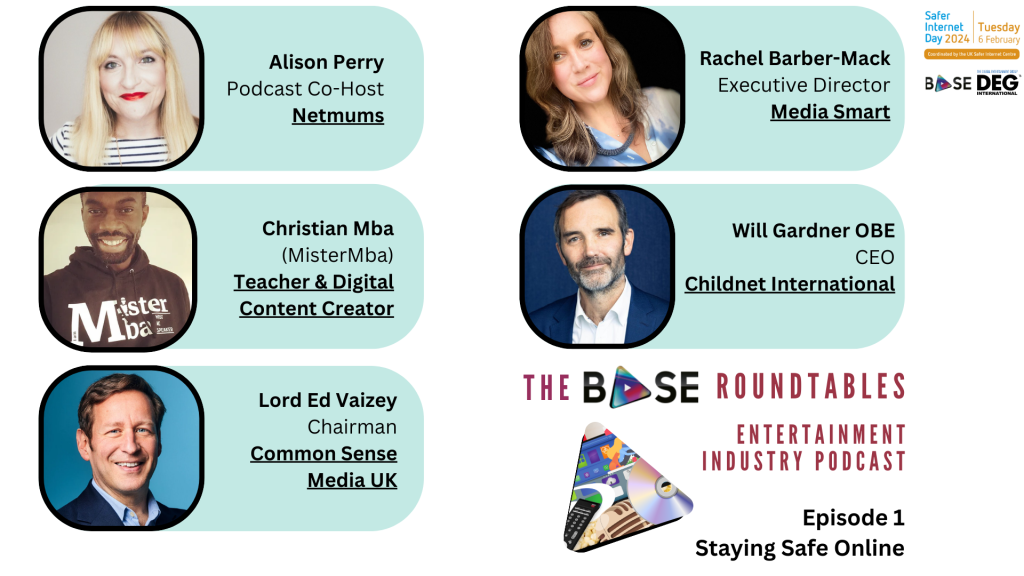Today, the British Association for Screen Entertainment & DEGI: The Digital Entertainment Group International is launching a brand-new podcast series to elevate expert opinion and conversations that matter across the entertainment industry.
The BASE Roundtables will feature insightful interviews with experts and industry leaders via recorded roundtables based on key issues. Episodes will be available to listen across Spotify, Apple Podcasts, Amazon Music, Google Podcasts & Deezer.
In conjunction with Safer Internet Day 2024, episode one features a discussion between five experts tasked with driving positive change around child internet use that will speak to parents and the broader community about the issues around staying safe online.
Through BASE’s dedicated unit within the long-running Industry Trust for IP Awareness, we consistently capture, analyse and disseminate insights on piracy behaviours. The work of the Industry Trust helps educate consumers about infringement risks and supports the creative community in coming together to help audiences enjoy their entertainment safely and legally.
Look out for more episodes covering various topics, from creativity to insight across the year.
Episode 1 – Staying Safe Online
We were joined by:
- Alison Perry: Podcast Co-Host – Netmums
- Christian Mba: (MisterMba) – Teacher & Digital Content Creator
- Lord Ed Vaizey: Chairman – Common Sense Media UK
- Rachel Barber-Mack: Executive Director – Media Smart
- Will Gardner OBE: CEO – Childnet International
Safer Internet Day 2024 takes place today, with celebrations and learning based around the theme, ‘Inspiring change? Making a difference, managing influence and navigating change online’.
3/4s of young people (71%) told the UK Safter Internet Centre that they feel a responsibility to report negative behaviour online, such as bullying, harassment, and illegal sharing of content and pictures. However, only 22% of young people say they have reported worrying or bad online behaviour, while only 33% say they haven’t needed to.[1] The reasons for not doing so include not knowing how, thinking there is no point, or worrying they will be targeted. Education, social norms, peer interaction, and personal experience heavily influence them.
Now, more than ever, we can support younger generations with education about the harms that exist online, what, when and how to do something and support and advice about what and where to report without fear of retribution.
















































